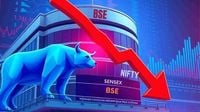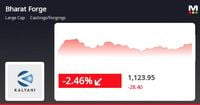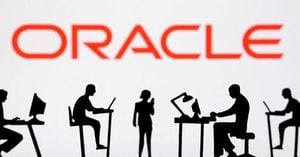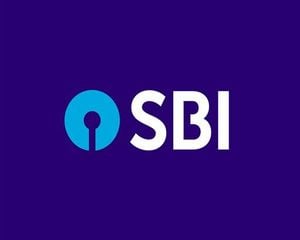On April 3, 2025, the Indian stock market experienced a notable decline, with the BSE Sensex falling by 205 points (0.27%) to close at 76,412.60, while the NSE Nifty dropped by 40.90 points (0.41%) to settle at 23,290.45. This downturn coincided with the announcement of a steep 26% reciprocal tariff on Indian imports by U.S. President Donald Trump, raising concerns over trade relations and the potential impact on economic growth.
The market's reaction was part of a broader global decline triggered by Trump's announcement on April 2, which he termed "Liberation Day." This new tariff policy includes a universal import tax of 10% on all imports to the U.S., effective from April 5, 2025. Alongside this, Trump introduced reciprocal tariffs targeting 60 countries, with India facing a 26% tariff, Japan at 24%, and the European Union at 20%. Such measures are anticipated to disrupt global supply chains across various sectors, including automobiles, pharmaceuticals, electronics, IT, and jewelry.
The immediate aftermath of Trump's tariff announcement saw a significant selloff in the Indian markets, with the Nifty 50 opening down by 180.6 points (-0.77%) to 23,150.30, while the Sensex plummeted nearly 805.58 points (-1.05%) to 75,811.86. This drop reflects a lack of investor confidence amid fears of escalating trade tensions.
Among the top gainers on April 3, Sun Pharma led the way with a 4.46% increase, closing at ₹1,790.15, supported by strong financial performance and favorable analyst sentiment. Cipla followed with a 2.92% gain, closing at ₹1,494.75, attributed to positive news about its Goa facility's USFDA clearance. Other notable gainers included Shriram Finance, which rose by 2.31% to ₹654.20, and Adani Enterprises, which saw a 2.07% increase to close at ₹2,414.80.
On the downside, HCL Tech topped the losers' list, dropping 3.41% to ₹1,475.50 due to a narrowed revenue guidance for FY25. Tech Mahindra also faced a 3.29% decline, closing at ₹1,376.25, while TCS and Infosys both recorded a 3.16% drop, closing at ₹3,318.65 and ₹1,501.10, respectively. Bajaj Auto experienced a 2.39% decline, closing at ₹7,880.25, reflecting broader concerns within the automobile sector.
Market expert N Jayakumar commented on the situation, noting that India has emerged relatively unscathed compared to other nations facing high tariffs. He believes these tariffs are more about political messaging than economic justification and suggests that ongoing discussions between trading partners may lead to a reduction in these tariffs. Jayakumar emphasized that the tariff rates lack a clear scientific basis, raising concerns about their economic rationale.
Despite the immediate negative impacts, Jayakumar sees potential long-term opportunities for India. He pointed out that the country stands to benefit from increased foreign investments as investors seek stable emerging markets. Sectors such as pharmaceuticals and IT services are expected to gain, positioning India as a competitive alternative to other tariff-affected nations.
The global backdrop also reflects the ramifications of Trump's tariffs. Following the announcement, Dow Jones futures plummeted by more than 900 points, with the S&P 500 and Nasdaq futures dropping by 3.9% and 4.7%, respectively. The U.S. dollar experienced a short-term decline, and the perception of the U.S. as a reliable trade partner has weakened, raising concerns over the unpredictability of U.S. markets.
In the commodities market, gold rates remained high, with 24-carat gold priced at ₹92,830 per 10 grams in India on April 3. Crude oil prices also saw a decline, with WTI crude falling by 2.68% to $69.79 per barrel and Brent crude down by 2.53% to $73.05 per barrel.
As investors navigate this turbulent landscape, stocks in focus include HDFC Bank, which received an admin caution letter from SEBI regarding regulatory non-compliance, potentially impacting investor sentiment. Meanwhile, Punjab National Bank reported a Q4 profit that exceeded estimates, driven by growth in global business through higher advances and deposits.
Additionally, Bharat Electronics Ltd secured a ₹593.22 crore order from the Indian Air Force for the upkeep of the Akash Missile System, while Kirloskar Oil Engines received a ₹270 crore order from the Indian Navy. Reliance Industries proposed an ₹8,000 crore integrated CBG plant in Andhra Pradesh, part of a larger ₹65,000 crore investment in the state.
In conclusion, while the immediate impact of the tariffs has created uncertainty in the markets, experts like Jayakumar suggest that India's favorable trade position and improving market conditions may lead to long-term growth opportunities. Investors are advised to monitor sector-specific recovery trends closely as the landscape evolves.






